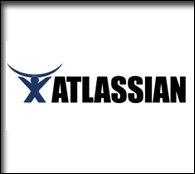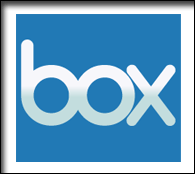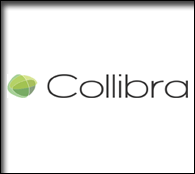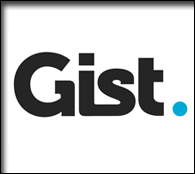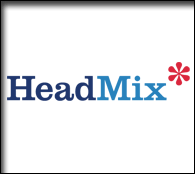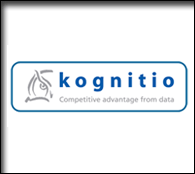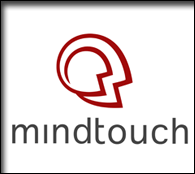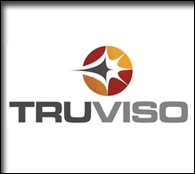The Dreaded Predictions List
by Eric Norlin on Dec.14, 2010, under Uncategorized
Ahhhh, December - how I love thee. I have this annual tradition in December where I completely suspend work for the last two weeks of the month, and I spend time assessing the past year (how I performed on personal goals; I’m big on writing down goals, etc), and plan out the coming 12 months (as part of a 3 year plan). One of the fun things I do as part of that is look forward for the year with regards to “the defrag space.” And that means, you guessed it, the dreaded “predictions” list.
[It should be noted that I'm not an economist, but that I am friends with a guy who plays a top 10 economist on the internet - for whatever that's worth.]
Drumroll….
1. The term “enterprise 2.0″ is dead - even if those using it won’t recognize that for two years: Trust me on this, these catchy terms outlive their usefulness. Why do you think I name all of the conferences one word names that barely relate to anything they’re about? E2.0 will become “social business” or some other descriptor, but as the technology adoption goes mainstream, these things will matter less and less.
2. Going mainstream means that small is where the innovation lives: The implicit prediction in #1 is, of course, that e2.0 goes mainstream. It does, and accordingly, “small” is where the innovation will live. Small vendors, small initiatives, and small conferences. If you want “mainstream, proven, workable” look for big. If you want “innovative, fresh, new” look for small. Simple.
3. Two topics dominant the e2.0/collaboration/social biz landscape — mobile and APIs (cloud): Mobile, API, mobile, API — just get ready for the refrain because it is coming. “Mobile” because that’s where the workforce is going to live, and all things mobile (platforms, interfaces, etc) are about to become an enterprise obsession. “API” because that’s where the value point is in the cloud. All of these collaboration applications are actually about data (the flow, use and leveraging of it) — and data is all about APIs. [For the record, I was going to add "analytics" in here, but the progress in analytics is so maddeningly slow that I think enterprises will almost give up on getting anything of value from analytics vendors in 2011.]
4. The U.S. economy grows at a surprisingly strong rate in the first half of the year, then flatlines under spending, deficit, inflation worries: It should be noted that my main economic prediction for 2010 (”we finish the year about where we start it on unemployment, etc”) was spot on. So, in that glorious halo of correctness, I throw this out there — QE2 (the fed’s efforts) and the tax cut deal (aka, “Stimulus 2″) are a shot in the arm in the first 6-7 months of 2011. We’ll grow in the 3% range, and the stock market will feel good. By September/October, the talk will be focused so firmly on problems around the spending/deficit/and inflation rearing its ugly head, that things grind to a flatline, and growth settles down in the 1% range. Unemployment never goes below 8% — and, most likely, it goes above 10% again before going down.
5. Tech IPOs return: LinkedIn, Zynga, Twitter, Facebook, Etsy, Groupon, Jive Software — 2011 will see the Tech IPO return. The accompanying liquidity events will send Silicon Valley into a frenzy rivaled only by those silly vampires in those Twilight movies. Talk of an “angel bubble” will ensue. It’ll be correct, of course — but in true Heisenbergian-fashion, the timing will be off. This bubble’s got legs (several years worth of legs). The “new tech bubble” will run well into 2013-2014. This is just the beginning of that craziness. [Corollary: Fred Wilson is the new John Doerr -- just go look at USV's portfolio.]
6. Acquisitions pick-up: Expect the cash to start loosening. Salesforce.com will continue to pick-up pieces that help them in the cloud (look for more heroku-like pick-ups). Oracle will counter by picking up pieces that help them in the e2.0 space (I fully expect either Socialcast or Yammer to be acquired in the first half of the year). And “social media analytics” companies are trendy acquisitions, but they don’t happen for much money.
7. Defrag *shrinks* in size: Okay, but on purpose. We’ve made the decision to cap the attendee count for next year’s show at 325 (a bit less than the head count for this year). We’re doing it because we’ve got the right size community for the types of conversations that we want to have, and focusing on “growing numbers” takes us farther away from what is the clear value at Defrag. While everyone else is giving away free expo floor passes, we’re setting a hard cap on our size — because quality trumps quantity every day of the week and twice on Sunday (when it comes to Defrag anyway).
8. Someone hacks the Microsoft Kinect in such a way as to provide “business value” (awesome videoconferencing): Call it intuition, but the Kinect is going to change a lot of business interactions. 2011 is where the hack starts (by 2012, it’s productized).
9. The “ladders as economic indicators” talk never gets old: And we all show up next year wondering what the new-fangled, Kedrosky indicator will be. Yea, if you weren’t there, you have no idea what I’m talking about with this one. ( I will be starting a “defrag pool” on what the new indicator/data set will be. Winner gets a free ladder!)
Lastly….
10. Defrag 2011 (5th year anniversary) turns out the be the best Defrag yet.
The Defrag Soundtrack
by Eric Norlin on Nov.22, 2010, under Uncategorized
Ladies and Gentlemen, the Defrag soundtrack (minus a few tracks that aren’t on iTunes):

Defrag Wrap-up, Part 1
by Eric Norlin on Nov.22, 2010, under Uncategorized
Defrag’s over, and my sense was that it was our best yet. I wanted to share some quick thoughts/reflections, and then come back in a later post (in a few weeks) and share my “here’s where we’re gonna improve” post that I do annually.
1. One of the ironies of being the guy that creates the agenda is that I barely get to see any speakers. I catch them in snippets, mostly — not whole chunks. I’ve actually identified this as a problem this year, and have some things going in place next year to fix it (ie, bringing in a “speaker manager” and staging area from our AV company, so as to remove that from my plate). In the meantime, the speakers that I did get to see part or most of were incredible. Jeff Ma was the perfect closer for day 1. David Weinberger brought unparalleled passion to morning 2. Paul Kedrosky led us down a road that only Paul can lead us down (and wonderfully), and Jeff Jonas astounded us with his work. My sense is that the rest of the speakers were equally as impactful.
2. Something really wonderful (I’ve been calling it “magical” - half in jest) happened this year. The “community” that we’ve been fostering as a core group of people really coalesced into the show itself. I had countless people who had never been before approach me and tell me that they felt like the environment was so welcoming, that they could approach anyone, that it was almost as if “they’d been here before.” And for those that had been here before, I think there was a qualitative difference. I don’t quite know how to put my finger on it yet, but Defrag (the gathering) really is like a family reunion in a lot of ways (the Cluetrain authors are now gathering there on an annual basis).
3. As a result of #2, I’m coming out of this show with a completely different outlook. Normally, the type A in me exits the show saying, “and next year, we’ll be X bigger,” or “and next year, we’ll have so-and-so here.” This year that’s really not the case. I don’t care if we ever grow by one more person. That’s irrelevant to me. The group of people we have assembled are so amazing, so happy, so involved — that adding to them doesn’t matter. In fact, adding to them, might damage what we have, so we’re actually gonna cap Defrag’s size right around this year’s number. As a tertiary result, I no longer care if TechCrunch (for example), or some enterprise, or anyone else decides to send someone. I love the people that are coming and that are there. And if you don’t know the coolness that is being at Defrag — well, it’s really more your loss than anything else.
I hope all of that’s coming across the right way (humble, thankful, amazed).
4. Lastly, a huge thank you to everyone at this year’s Defrag. You were an absolutely amazing group of people -and (as witnessed above) you’ve transformed what Defrag will be forever.
Next year is Defrag’s fifth year of existence, and I cannot WAIT to do this for another 5 years, so that I can be sitting here talking about how Defrag’s 10th anniversary is coming.
We’re gonna do a lot of special events to celebrate next year’s fifth incarnation of the show — I hope all of you Defrag alumni will plan to attend.
Defrag Speakers on Distracted Enterprise
by Eric Norlin on Nov.12, 2010, under Uncategorized
We’re four days from Defrag, and I wanted to call your attention to the beginnings of a conversation that will take place during and after the show.
Our friends at Mainsoft have set up a blog called “Distracted Enterprise” (good stuff), and we’ve asked speakers to begin posting thoughts about their Defrag sessions there. It’s a great way to begin a conversation that I hope continues far after the show is over.
As an example, check out Stowe Boyd’s post on “Social Cognition” (the topic of Stowe’s Defrag keynote):
We are in a time of great research on social cognition, but the biggest testing ground is on the web, where literally billions of people are connecting on an unprecedented scale. All too often we try to reduce what is happening there to ‘collaboration.’ But calling what goes on when people are connected by social tools to ‘collaboration’ is like calling the experience of going to college ‘studying’. There’s a whole lot more going on, and we are seeing all sorts of research that challenges conventional wisdom about what works best in business, media, education, and on the personal level.
It’s worth checking out the whole thing, and keeping an eye on the space.
Oh, and you can still join us at Defrag. ![]()
Can E2.0 Overcome Human Nature?
by Eric Norlin on Nov.09, 2010, under Uncategorized
Last night, somewhere in the second quarter of the Steelers-Bengals game, I asked a rather loaded question on Twitter:
“Does anyone actually believe that e2.0 can overcome human nature?”
I forget the specific thing that triggered me to ask the question, but I do know that I get tired (quickly) of the “it’s all about culture” answer in regards to what brings success in e2.0 projects. Now, don’t get me wrong, it *may be* that it is truly “all about culture” — but what frustrates me are A) the complete lack of specificity that usually accompanies that comment and B) the underlying assumptions about human nature (more B than A).
You see, it’s not that I don’t want to talk about “culture” — heck, our whole first morning of Defrag is essentially devoted to it — it’s just that I want to begin by talking about the assumptions that underlie what we mean when we say “culture.” And those assumptions are driven largely by our (individual and collective) view of human nature. For example:
Q: Are humans naturally sharing and good, seeking to benefit those around them? A: Have you ever put one desired toy in a room with 2 two year olds?
Q: Okay, are humans naturally bad, self-interested beings? A: Have you ever seen a person sacrifice themselves for someone they barely know?
My point is that any discussion of “human nature” is so nuanced, so philosophical entangling, so old as the hills that philosophers have been debating it for (literally) thousands of years — that it’s just silly for us to step in, make a bunch of easy assumptions about human nature and then move on to solving “the culture problem.” You can’t talk about “sharing” or “collaboration” or “incentives” in an enterprise setting without running into this thicket of nasty presuppositions.
Are we stuck, then, in our efforts to deploy things like this in the enterprise? Of course not. We have to deploy -even if we can’t solve the answer to “human nature.” But that doesn’t mean that we shouldn’t set aside time to consider the hard questions, to push back against the assumptions, and to sweep aside the easy pop-culture philosophy of modern western civilization.
This is sticky stuff that deserves real thought in a setting that is filled with concerned, intelligent, thought-provoking antagonists.
Wait - I think I just described Defrag. ![]()
It’s not too late to join us.
The 4 Salesmen
by Eric Norlin on Nov.06, 2010, under Uncategorized
Okay, a bit off topic here (and a little weird, but that’s how my mind works), but hang with me…..
I was thinking last night about how much gets written about sales and startups. I consider myself a pretty decent sales guy with the conferences (and I did selling of enterprise software at Ping), so I thought I’d throw in my two cents.
To that end, I think you can view the salesman (I use that term generically to mean both genders, and purely for literary impact) through four lenses or modes: The farmer, the merchant, the artist and the warrior.
The Salesman as Farmer is the seed-planter. The person that fosters long-term, future relationships and partnerships. Often this gets called “biz dev.”
The Salesman as Merchant is transactional. They’ll focus on negotiating a price that sells, and make value for features the name of the game. Often, they want to default to “discounting.”
The Salesman as Artist is inspirational. When the artist sells, you feel inspired. Together, you’ll create something special.
The Salesman as Warrior closes. This is the trickiest mode, as it can be used for “good” or “evil” - the good warrior knocks down objections until your only option is to close to a yes. The bad warrior bullies the unwilling into buying something they might not want or need.
Here’s the thing: the BEST thing, and the thing that all salespeople should be striving for, is to embody all four modes simultaneously. The “perfect sale” fosters a long-term relationship, focuses on price for value, inspires and creates, and removes all objections (through mental aikido, not karate). The perfect sale is simultaneously farmer, merchant, artist and warrior.
How’s that for a little Saturday morning start-up wisdom? ![]()
btw: come to defrag.
In the Chute
by Eric Norlin on Nov.05, 2010, under Uncategorized
My long-time business partner, Phil Becker, describes the last four weeks leading up to a conference as being “in the chute.” Which is to say, you’re a bull or bronco rider at a rodeo, you hop on, find your grip, gain your balance, mind-racing, heart-pumping, and give them the thumbs up — and then there’s a lag, and in that 2 seconds or so before they open the chute, there’s this weird, calm anticipation. That’s being in the chute.
At 4 weeks out, the details hit. At 3 weeks out, it gets worse. At 2 weeks out, you don’t know how it will ever get better. And then at about 7 days out, this weird calm anticipation takes over. You’ve done all that you can to make the show great. You’ve poured every ounce of energy and know-how you’ve got into the thing. You’ve got sponsors and speakers and bags and fleeces and barcamps and pre-conference dinners and reception and menus planned and robotic balls and books ordered and bags ready and badges printed and registrations rolling in and press registered and A/V set and wifi done and opening video being rendered and and and…the list never ends.
Until it does. And then, in the last few days before the show, you survey. The house you work out of is completely trashed. Your intentions to exercise five days a week and lose just a few more pounds before the show have gone to hell. You’ve sampled fast food and pizza far more than you should. There are white boards with numbers, stick figures and cuss words in various rooms of your house. Your dogs think you’re nuts because your sleep patterns are screwed. And there always seems to be the faint sound of the Scorpions in the air. But, somehow, you’re ready.
You’re in the chute. The show’s gonna happen. And it’s going to be great.
That’s where I’ll be in 5-6 days (i’m still in detail hell at the moment).
Once the chute opens, we get on a plane, fly to denver, experience 3.5 days of pure madness. And it’s over. The bucking bronco gets put back in the stall, and with any luck, they’re not pulling you out of the ring on a stretcher.
Oh yea - and you can join us on the “ride” part of the chute opening. Join us.
P.S. I’d be completely remiss if I didn’t point out that my wife Kim is 99% the reason that the last four weeks before any of our shows turn out to be a success and not a complete and utter failure. All of the details mentioned above - yea, she handles those. ![]()
The New, the Brand New and To Be Announced
by Eric Norlin on Nov.01, 2010, under Uncategorized
Sixteen days to Defrag. Do you have your ticket yet?
As if the content and sessions and networking wasn’t enough, we’re bringing the new hotness to Defrag. Blekko, which is in the WSJ this morning is coming to speak (and Blekko’s REALLY cool, you should check it out). Microsoft is bringing the new Xbox Kinect system to the show, where we’ll not only be playing it in their booth area, but we’ll be putting it on a 13×36foot HD screen for attendees to play on Morning 2. I’m also working on things like demo areas for robotic balls, and announcements from various companies that we can’t talk about just yet.
The point is: for two days, we’re going to bring depth of conversation and combine it with newness and innovation. It’s a winning mix, and one that you cannot experience via livestream, etc (we won’t be streaming the event, sorry). You simply must be there to get it.
Join us.
Breaking the Echo Chamber
by Eric Norlin on Oct.29, 2010, under Uncategorized
I’m writing this morning in a text editor, as I wait for internet to be restored at my house. And I’m suddenly thinking that I’ve got to get a 3G iPad or a mifi device (or an HTC Evo), because MAN do I feel cut-off from the rest of the world. ![]()
All of that got me thinking about how easy it is for communities to become insular.
The “echo chamber” phenomenon is an easy one to fall into, incredibly hard to recognize when you’re in it, and can happen regardless of the size of the community. Sections of the valley’s “community” falls into echo chambers all of the time (where they’re talk to the same people, hear only the same feedback, and thing all of the same thoughts), but so do the communities in Boulder, the Twin Cities, everywhere. At some level, I think it’s a cyclical phenomenon that occurs as communities morph and grow.
One of the reasons that I love having Defrag in Colorado is that it breaks that echo chamber — in two ways:
1. If you’re from Colorado, it’s not that you don’t have great events there (Ignite, BDNT meetup, etc). And it’s not that you don’t have a great community (you do). It’s that the community can still get a little insular. 70% of Defrag’s attendees are from outside of the state of Colorado. That’s a huge percentage. Now, would I like to see more participation from local Colorado tech folks? Of course, I would. But, in some ways, NOT having Defrag be a “colorado event” (ie, where 90% of the attendees are from CO) is really *good* for the Colorado folks that do attend. It means the get to step outside of the echo chamber without having to travel to California or the East Coast.
2. If you’re not from Colorado, coming to Defrag removes you from your normal surroundings. Defrag attendees are pretty evenly distributed geographically. Folks come CA, IL, FL, VA, MA, ME, TX, UT, TN - hell, even China, New Zealand and Australia. In short, Defrag gathers a group of people from ALL over. Echo chamber broken.
The point is: No matter where you’re coming from, Defrag offers you a way to unstick some stuck thinking, to step outside of a mental comfort zone, and the get those wheels turning at a fast pace. Join us.
Hotels and Barcamps
by Eric Norlin on Oct.28, 2010, under Uncategorized
Two important things to note on a busy Thursday morning:
1. Our discounted hotel room rate expires tomorrow. I’ve looked around and this is the cheapest rate you can get within a three mile radius of the conference - plus, you’ll be right there where the action is. At $149/night, it’s an unbeatable steal for a 4-star resort experience.
2. Defrag advisor and startup guy extraordinaire, Ben Kepes, is throwing a BarCamp entitled “Technology4Good” on the evening of Defrag day 1 (November 17th). The topic is simple: why not build some technology that actually does some good in the world (like help people find water in Africa, or help survivors of earthquakes, or or or)? Well that, or we could start another Groupon clone. ![]() Be sure to register (it’s free) and join Ben to explore this topic.
Be sure to register (it’s free) and join Ben to explore this topic.
Okay, back to the salt mine for me — 20 days until Defrag, so get your butt registered!
